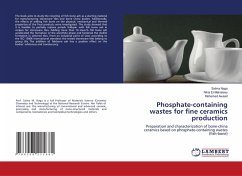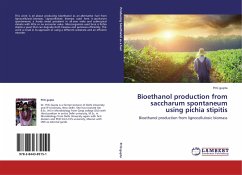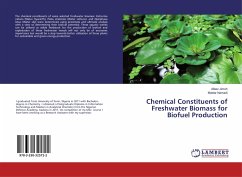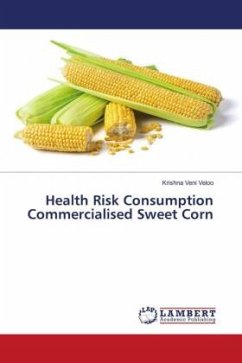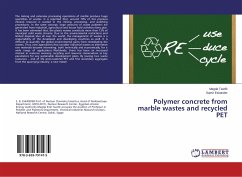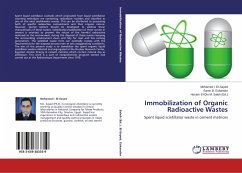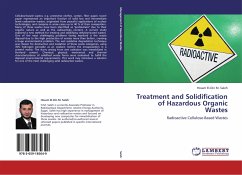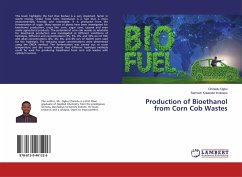
Production of Bioethanol from Corn Cob Wastes
Versandkostenfrei!
Versandfertig in 6-10 Tagen
27,99 €
inkl. MwSt.

PAYBACK Punkte
14 °P sammeln!
This book highlights the fact that biofuel is a very important factor in world energy. Unlike fossil fuels, bioethanol is a fuel that is more environmentally friendly and renewable; it is produced from the fermentation of sugar. Many species of plants have been investigated for bioethanol production; crops like: corn, sugar cane, cassava and even waste agricultural products. The potential of corn cob wastes as substrate for bioethanol production was investigated at different conditions of hydrolysis. Different acid concentrations (3%, 5%, 6%, and 10% w/v of HCl) and alkali concentrations (2%, ...
This book highlights the fact that biofuel is a very important factor in world energy. Unlike fossil fuels, bioethanol is a fuel that is more environmentally friendly and renewable; it is produced from the fermentation of sugar. Many species of plants have been investigated for bioethanol production; crops like: corn, sugar cane, cassava and even waste agricultural products. The potential of corn cob wastes as substrate for bioethanol production was investigated at different conditions of hydrolysis. Different acid concentrations (3%, 5%, 6%, and 10% w/v of HCl) and alkali concentrations (2%, 4%, 6%, and 8% w/v of NaOH) were used for the hydrolysis. The reducing sugar concentrations were determined using the DNSA method. The fermentation was carried out at room temperature and the results indicate that different hydrolysis methods could be used for producing bioethanol from corn cob wastes with optimum success.




